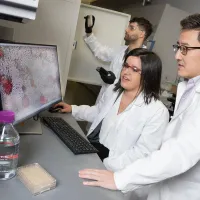News


When Postdoctoral Research Fellow Hannah Youngblood’s work on exfoliation glaucoma (XFG) was featured by the BrightFocus Foundation, it caught the attention of Jennifer Rucker, …
This year, the QBioS Graduate Program welcomed our 10th cohort of PhD students.

With more than 60 presentations and recognition for neuroscience outreach and AI research, Georgia Tech demonstrated its growing impact at the 2025 Society for Neuroscience’s annual meeting.
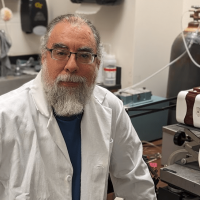
Physics Professor Flavio Fenton has been named a Bill Kent Family Foundation AI in Higher Education Faculty Fellow. The fellowship supports faculty projects that explore innovative, ethical, and impactful uses of AI in teaching and learning…
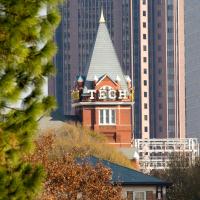
The AI4Science Center's seed grant aims to support the development of research projects centered on innovation and collaboration.
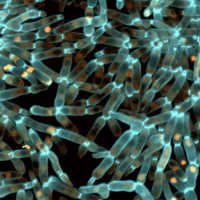
The grant will enable research into the origin of complex life.

Peatlands make up just 3% of the earth’s land surface but store more than 30% of the world’s soil carbon, preserving organic matter and sequestering its carbon for tens of thousands of years. A new study sounds the alarm that an extreme drought…

Neuroscience experts from across Georgia Tech will soon come together for a new interdisciplinary research institute, the Institute for Neuroscience, Neurotechnology, and Society (INNS), launched in July. Faculty in INNS are helping to solve some…

The Quantitative Biosciences Interdisciplinary PhD program at Georgia Tech welcomed 11 new doctoral students to our program starting 2025-2026. They are the 10th class of incoming students for our program, which first enrolled students in…
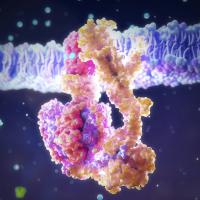
The questions of how humankind came to be, and whether we are alone in the universe, have captured imaginations for millennia. But to answer these questions, scientists must first understand life itself and how it could have arisen.

Between a third and half of all soil carbon on Earth is stored in peatlands, but as temperatures warm, this carbon is in danger of being released. A new study is unearthing the ratio of carbon dioxide to methane released — because while both are…
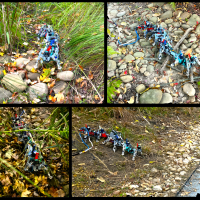
Juntao He, a Ph.D. student in the group of Daniel Goldman, Professor in the School of Physics at Georgia Tech led a pair of research papers that paves the way to make these bots able to move faster and climb higher in challenging environments.…
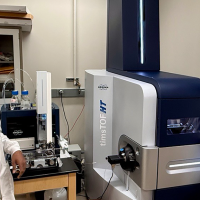
This transformative addition is funded by a prestigious S10 Shared Instrumentation Grant from the National Institutes of Health.
Researchers in the School of Physics unravel the secrets of the centuries-old practice of knitting in a new study that explores the physics of ‘jamming’ — a phenomenon when soft or stretchy materials become rigid under low stress but soften under…

Approved by the Board of Regents in 2017, the B.S. in Neuroscience program is one of Georgia Tech’s fastest-growing majors with more than 500 students enrolled in 2024.

